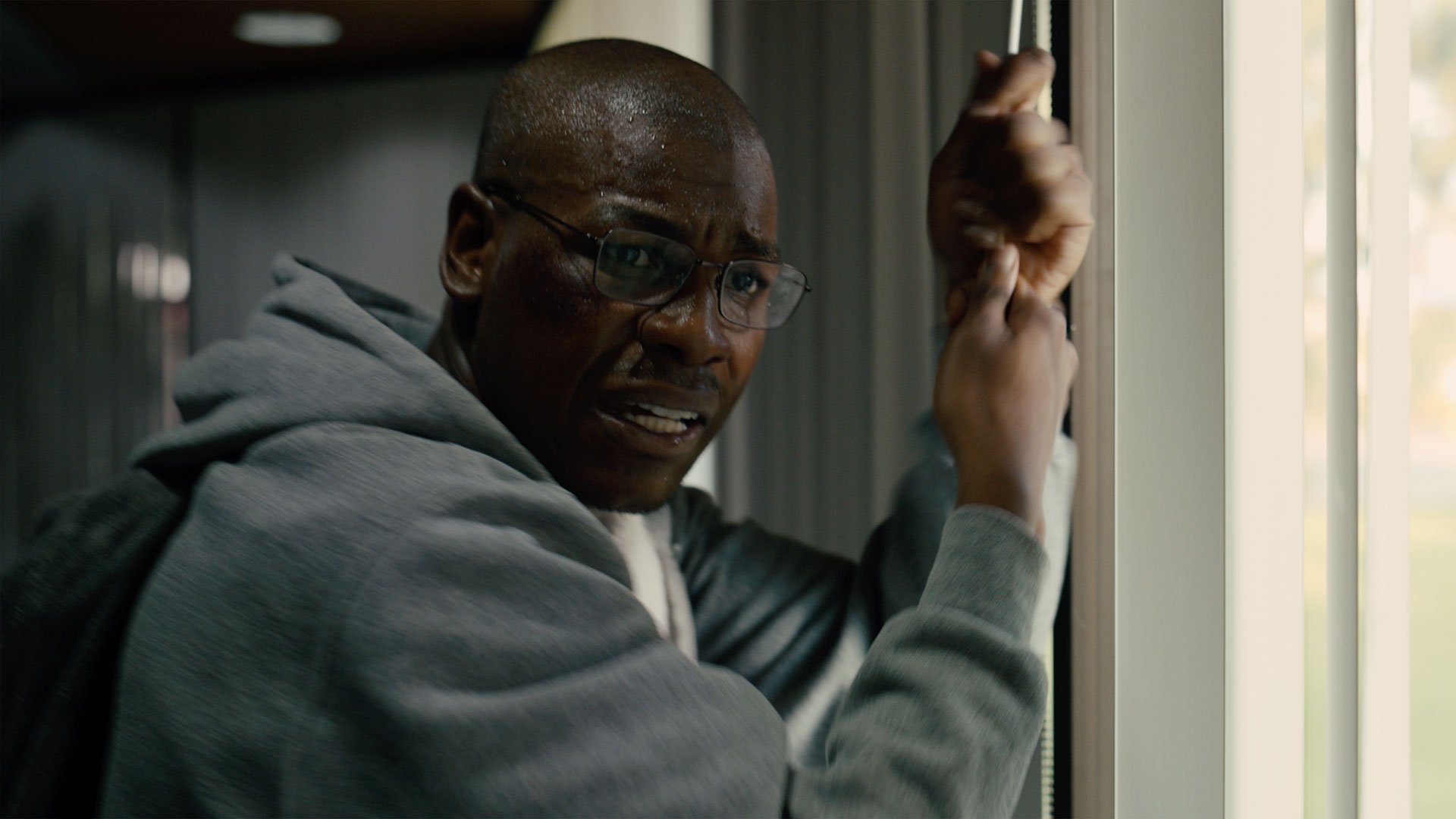Remembering Abi Damaris Corbin’s ‘Breaking’ This Memorial Day Weekend
Remembering Abi Damaris Corbin’s Breaking This Memorial Day Weekend
Abi Damaris Corbin’s Breaking (2022) is a heart-touching film that highlights and humanizes the life of former U.S. Marine war veteran, Brian Brown-Easley (John Boyega) in a thrilling drama. Using a part-documentary style approach, the film illuminates Brian’s intimate experiences with the Department of Veterans Affairs as he struggles to reintegrate into society following social and financial neglect on their part. In a 104-minute-long cinematic story, Golden Globe Award winner John Boyega delivers a captivating and heartfelt performance that brings to life the hardships and attempts at redress Brian endured before taking matters into his own hands. Breaking showcases some of the most alluring performances by John Boyega, Nicole Beharie, Selenis Levya, and Michael K. Williams, and beautiful cinematography among recent films while forcing viewers to confront the harsh realities of many veterans living in the narrative shadows of American patriotism.
The editing of the film immediately represents the chaos that subsumes Brian’s life as there is a play on and disruption of temporality in the film. This disruption of time and space begins during the introductory scene where officers throw Brian out of the Veterans Affairs office, leaving him with a bloody wound on the right side of his face. The next scene that centers Brian shows him walking outside along a highway while phoning his daughter, Kiah (London Covington), as he begs her to put her mother on the phone before his cellphone minutes run out. This scene is interrupted by several shots of him in his hotel inn in the present, thus blurring the lines of time and space during the opening scene of the movie. The editing of these shots emphasizes his disarrayed state of mind before eventually transitioning into the next scene where he creates a home-made detonator. Brian then leaves the inn, bypassing several houseless men who are presumably veterans as well, to a Wells Fargo bank just before he enters and takes it hostage. This introductory scene reveals that many veterans are forced to live at the literal margins of society and it induces the viewer’s sympathy for their condition of living.
Without knowing the real story of Brian Brown-Easley, the film seemingly introduces Brian as a disruptor but the interjected scenes from the past, along with his monologues of frustration during the long, dramatic bank hostage scene humanize him and dispel the notion that he is a disruptor/disturbance. The true disturbance is the injustice that Brian (and other veterans) faced by a neglectful Department of Veterans Affairs.
I was moved by the theme of empathy for Brian, mainly showcased via the actors’ affective performances in response to hearing his story, seeing his desperation while remaining mostly non-violent, and their own familiarity with Veteran Affairs’ mistreatment of veterans. Breaking highlights the common mistreatment of veterans in bank teller Estel’s (Nicole Beharie) recollection of her own veteran husband’s experience and her experience talking with homeless veterans in her neighborhood. The hostage scene is interjected by scenes from the past where Brian attempts to collect his disability check from the Department of Veterans Affairs. The camera captures this scene in a gray-colored, depressing tone to complement the veterans’ state of despair as they wait in an overcrowded seating area for their turn to speak to a representative. Another past interjection captures Brian’s desperation in a closeup shot as the Veteran Affairs officers arrest him on the ground before throwing him out of the office. Returning to the present moment of the negotiation scene, Officer Eli (Michael K. Williams) offers his experiences with Veterans Affairs to Brian not merely as a tactic to make Brian surrender, but to emphasize the empathy that he feels for him. Further into the negotiation scene, the sniper offers a sorrowful pause at seeing Brian’s Marine photo on the news while aiming his gun at him during the hostage standoff. To see a Black man who has been pushed to the edge surrounded by empathy and compassion really underscores the film’s care for Brian Brown-Easley’s story.
There are many of levels of surrounding that take place in the film. Brian is surrounded by the tenderness of Black women. Estel and Rosa (Selenis Levya) showed him a lot of compassion while being held hostage (yes, fear played a role in their response to him, but I sense their compassion and care for Brian’s experiences). Brian is also surrounded by Kiah’s love during their phone calls, most noticeably during their final call where Brain sits on the floor of the Wells Fargo bathroom and ensures Kiah that she will be fine no matter what happens to him. Both John Boyega and London Covington offer Academy Award deserving performances as the camera cuts between Brian sitting on the bathroom floor of the bank and Kiah sitting on the bathroom floor of her and her mother’s, Cassandra’s (Olivia Washington) home as they share dialogue. Brian asks Kiah to pray with him and the camera slowly pans upward from the open bible in his lap to his emotional face as he recites Psalms 91. The space of the bathroom, a space that represents release, excrement, and cleansing, encapsulates the release of Brian’s pain before he is later killed by the police who raid the bank. The raid represents another level of surrounding in the film—Brian is surrounded by the FBI and SWAT team, and he is surrounded by a system that failed him.
Breaking is also a commentary on the paradoxical relationship that Black men have with the State. Officer Eli works for the State via the FBI and still manages to hold emotional space for Brian and his actions. Brian worked for the State via the Marines but is now considered an antithesis to the State via his actions at Wells Fargo. The film does a great job showcasing the complexity of this relationship to the State using John Boyega’s and Michael K. Williams’ characters. It confirms this complex relationship at the end where Officer Eli retrieves Brian’s pack of Newport cigarettes and cross necklace from his murder scene to place it next to a picture of himself and his army unit at home.
In the end, Breaking humanizes Brian Brown-Easley’s story and his fight for justice. This is represented by the director’s choice to omit the full portrayal of Brian’s deceased body from the film. In doing so, Abi Damaris Corbin protects the integrity of both Brian the character and Brian the real man who is the inspiration for this film.
As we enter this Memorial Day weekend, films like Breaking serve as a serious reminder and call-to-action for the importance in truly honoring those who have served this country. It is at once a cinematic obituary that honors Brian Brown-Easley’s life and a fortress for his legacy.
—Dominique Young


